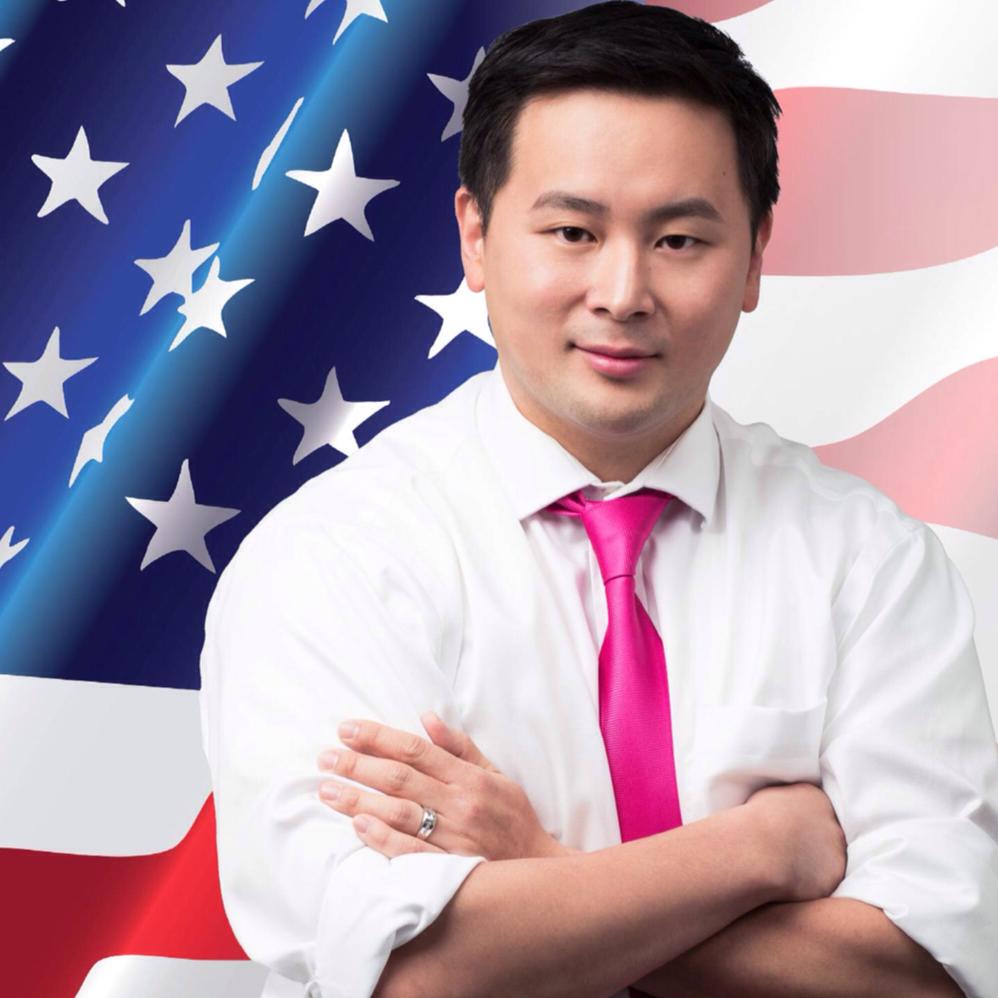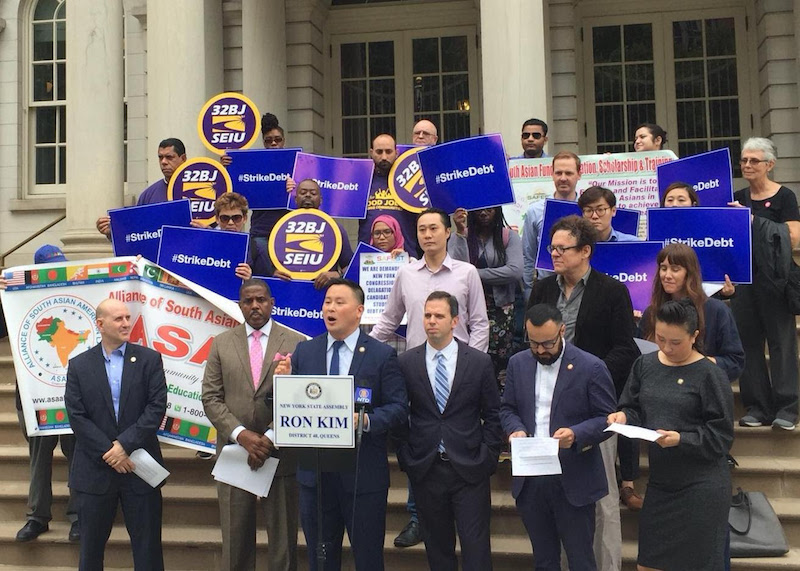Assemblyman Ron Kim (D-Whitestone, Flushing, College Point, Murray Hill) last week issued a letter to all of New York’s congressional members and candidates, asking that they pledge their support toward canceling the nation’s out-of-control education debt.
The call at a press conference in front of city hall when lawmakers pointed out studies show almost 45 million borrowers will owe nearly $1.6 trillion in national student debt by the end of 2018.
Additionally, the Levy Economics Institute of Bard College recently published a comprehensive white paper detailing the long-term positive impact of and financial mechanisms for canceling the nation’s $1.6 trillion student debt: http://www.levyinstitute

“The most comprehensive data on our national education debt should worry every economist and politician, as it clearly shows a country that’s sleepwalking into another financial meltdown,” said Kim. “Instead of giving away trillions of dollars to corporations that simply buy back their stocks and reward their top executives and investors, we must find the political courage put that money towards relieving the middle class by canceling the nation’s $1.6 trillion student debt. With Brett Kavanaugh‘s nomination to the Supreme Court and [U.S. Department of Education Secretary] Betsy Devos leading a national agenda that empowers lenders and collectors to financially cripple future generations, we must act now.”
Joining Kim in signing the letter were fellow Manhattan Assemblymembers Yuh-Line, Dan Quart and Harvey Epstein, as well as State Sen. Kevin Parker (D-Brooklyn) were joined by the leaders and representatives of these organizations at a rally on the steps of City Hall.
The lawmakers pointed out that by the second quarter of 2018 household debt had increased for 16 consecutive quarters to $13.29 trillion, and that student debt, unlike other forms of debt, is nearly impossible to discharge through filing for bankruptcy. Additionally, someone with student debt can have their wages and even Social Security garnished for its repayment, they noted.
Other speakers mentioned that, outside of mortgage debt, the total amount of student debt owed in America now surpassed all other forms of debt, and had by far the highest rate of delinquency.
In New York City, more than 15% of adults have student debt (totaling roughly $35 Billion) and borrowers from low-income neighborhoods have twice the difficulty paying back their loans compared to those in high-income communities.
Even these striking numbers and data trends do not capture the negative socio-economic impact and outcomes of this type of debt, including the inability of younger Americans to marry, buy a home and invest in the next generation, the lawmakers said.
“My colleagues and I are putting the pressure on members of Congress to act swiftly to prepare legislation that will afford individuals a fair and equal opportunity for a better life by canceling student loan debt,” said Parker.
“With the cost of living at an all-time high and an individual’s ability to earn higher wages decreasing or at best stagnant and not keeping up with the rate of inflation, it is imperative that we begin to level the playing field by eliminating student debt and giving our citizens a chance to live a meaningful, debt-free life. We have to take a stand to ensure that the people in our communities – our children and those who may want to return to school to improve their quality of life, are not deterred because of the fear of accumulating student loan debt that they will have to spend a good part of their life paying off,” he added.
Among the local community groups and labor groups also signing onto the letter included Professional Staff Congress (AFT Local 2334), 32BJ SEIU, The Debt Collective, Make the Road New York, Minkwon Center for Community Action, Korean-American for Political Advancement, Chinese-American Planning Council, Apex for Youth, Asian Americans for Equality, Asian American Federation, The Alliance for Quality Education, Coalition for Asian American Children and Families, Digital Asset Trade Association, Sakhi for South Asian Women, Alliance for South Asian American Labor, Edward Cornell Professor of Law and Finance Robert Hockett, the Bancor Protocol, ConsenSys Social Impact, South Asian Fund for Education, Scholarship & Training, and Democracy Earth Foundation.
Kim said colleges and universities should also be pressured from constantly increasing their tuition and other costs. That needs to be part of the education equation, but the first thing to do is erase current student debt, he said.








